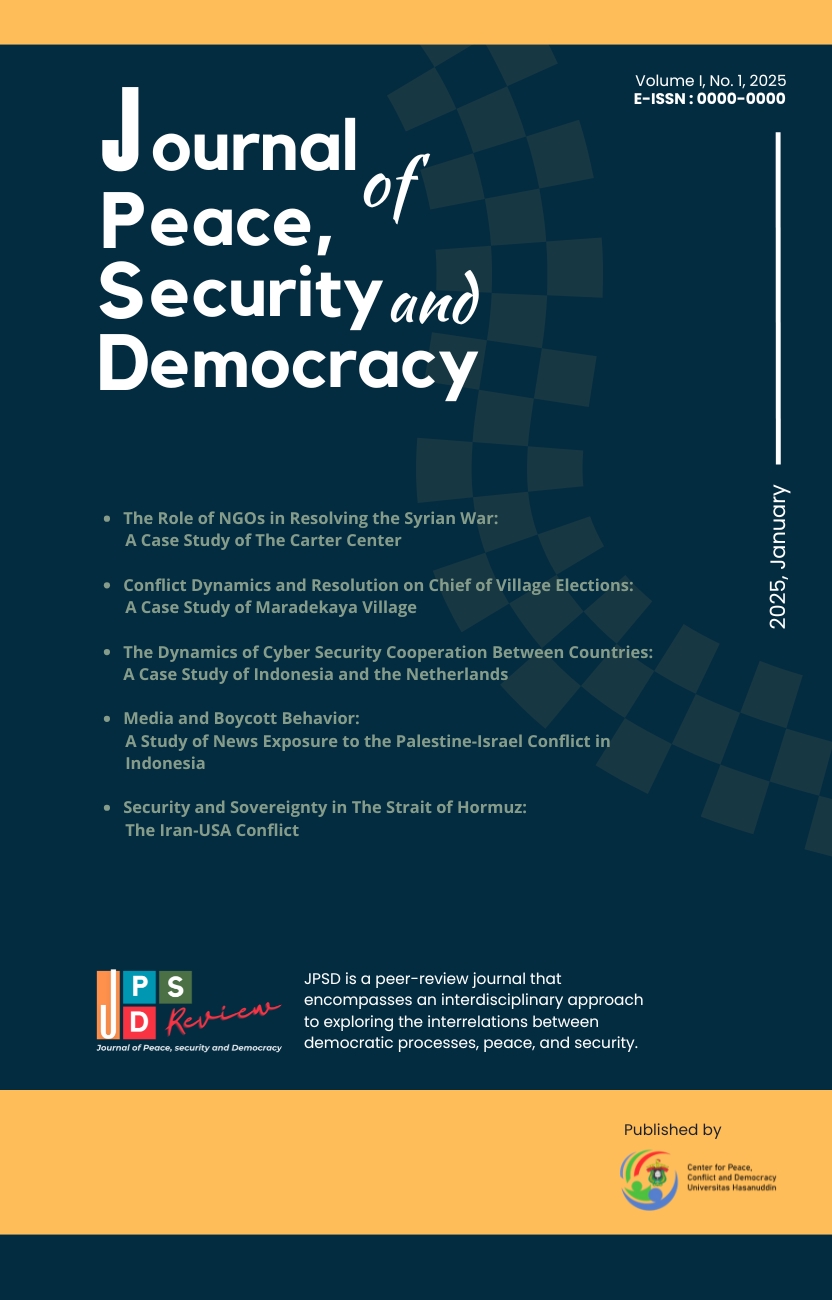Security and Sovereignty in The Strait of Hormuz
The Iran-USA Conflict
DOI:
https://doi.org/10.63280/jpsd.v1i1.42245Keywords:
strait hormuz, shipping conflict, stability, interests, Geostrategy, Security, USA-Iran ConflictsAbstract
This study aims to determine the interests of Iran and the USA in the Iran-USA shipping conflict in the Strait of Hormuz and the impact of the Iran-USA shipping conflict on security stability in the Strait of Hormuz. The research method used in compiling this thesis is descriptive, with a literature review data collection technique. The results of this study indicate that Iran's interests are classified as defense interests, namely to maintain the existence and sovereignty of its country from sanctions imposed on them by Western countries, and economic interests, namely to resolve the impacts resulting from sanctions imposed by western countries on the development of nuclear weapons made by Iran as their military defense tool. Meanwhile, America's interests are classified as world order interests to maintain its trade activities in the Strait of Hormuz so that they can run well and ideological interests to maintain its existence as a world police responsible for maintaining the concept of the international ocean as a route that any other country cannot claim. The impact of the Iran-USA shipping conflict on security stability in the Strait of Hormuz is the increasing escalation of the conflict in the Strait of Hormuz, the threat to global trade activities marked by a decline in global oil trade activities, and the increase in oil prices on the global market.Keywords: strait Hormuz, shipping conflict, stability, interests.
Downloads
Published
How to Cite
License
Copyright (c) 2025 Hardian Noviyanto, Agussalim Burhanuddin, Nurjannah Abdullah

This work is licensed under a Creative Commons Attribution-NonCommercial-ShareAlike 4.0 International License.












